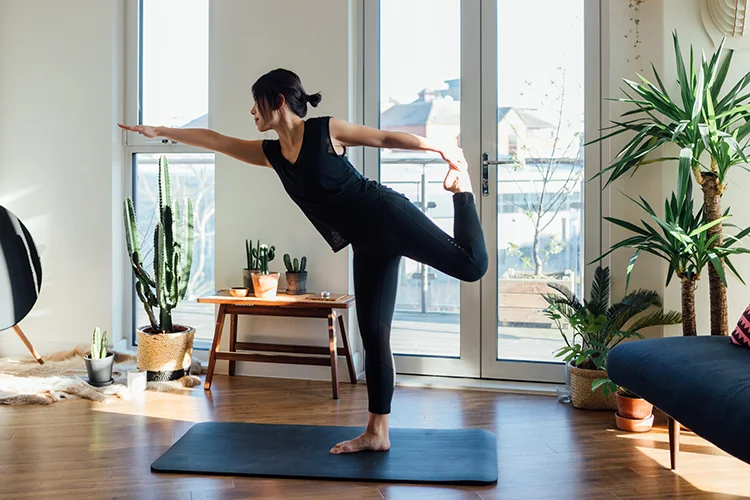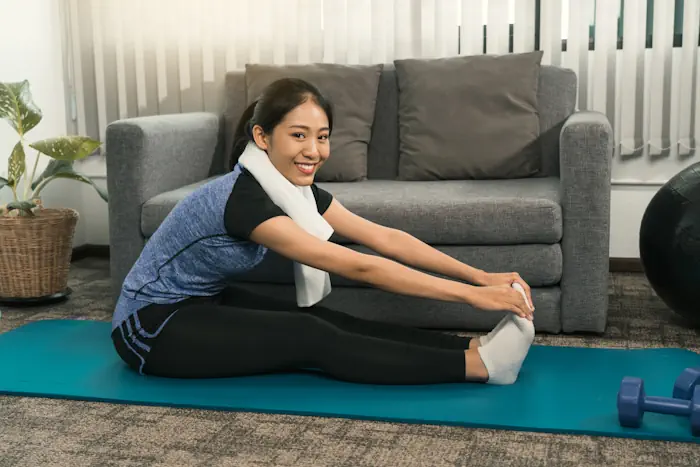Topics
What is physical activity?
Ministry of Health (MOH) Malaysia defines physical activity as bodily movement produced by skeletal muscles that result in energy expenditure.
There are three main components when we talk about physical activities: occupational work (activities during working), household chores (activities as part of daily living), and physical activity during leisure time (such as exercise and sports).
What is physical inactivity?
The opposite of physical activity is physical inactivity. This refers to sedentary or physically passive behaviours that involve minimal bodily movement such as watching television, working on the computer, driving, reading, among others.
Limiting the amount of time spent being sedentary especially recreational screen time is necessary for our health and well-being. Higher amounts of sedentary behaviours have been linked to unfavourable health outcomes, such as weight gain, poorer cardiometabolic health, reduced fitness, disrupted sleep, among others.
What are the benefits of regular physical activities?
Studies have shown that physical activity is good for our heart, body, and mind. It is an important factor in promoting overall health.
Here’s the list of benefits of engaging in regular physical activities:
- Helps maintain a healthy weight
- Improves physical fitness, strength, endurance, muscle tone, body posture
- Reduces risks of chronic diseases such as diabetes, high cholesterol, high blood pressure, coronary heart disease, stroke, and cancers
- Improves heart and lung function
- Improves blood glucose and helps maintain a healthy blood pressure
- Helps maintain bones and joints health
- Improves energy level
- Releases endorphin (hormone) that helps with sense of well-being
- Helps reduce symptoms of depression and anxiety
- Helps with faster recovery from illnesses
How to stay active on a daily basis?
To improve overall wellness, the World Health Organisation (WHO) recommends 150 minutes of moderate-intensity or 75 minutes of vigorous-intensity physical activity per week, or a combination of both.
The following are some recommendations on how to stay active and reduce sedentary behaviour on a daily basis:
- Start incorporating more active options in your daily life.
- Walk up the stairs instead of using the lift/elevator
- Walk instead of drive whenever possible
- Park your car in a distance and walk to your destination
- Carry out household chores such as cleaning and gardening
- Accumulate at least 30 minutes of moderate-intensity physical activity 5-6 days per week.
- Examples of moderate-intensity activities: brisk walking, aerobic exercise, sports such as badminton, basketball, cycling, swimming, rope-skipping
- However, as your fitness level increases, you can aim for 60 minutes of moderate-intensity physical activity, preferably daily
- Include activities that help increase your flexibility, muscle strength and endurance 2-3 times
per week.
- Examples: stretching, sit-up, push-up, leg press, weights (dumbbells)
- Limit your time spent being sedentary.
- Reduce your sedentary time by standing up as frequent as possible
- Aim to stand up, walk around, or do simple on-the-spot activities such as stretching after spending 30 minutes or so sitting or lying down
- Limit sedentary behaviours, in particular recreational screen time to a maximum of two hours per day

Make an appointment at Pantai Hospitals
Engaging in regular physical activity is a lifestyle, not a quick fix. While physical activity is important, you should also be eating healthily and stay hydrated. Ensure that your daily diet is nutrient-dense with plenty of fruits and vegetables. Limit your salt, sugar, and fat intake. Choose whole foods instead of refined or ultra-processed foods.
If you have questions about fitness and exercise, contact the team of dietitians at your nearest Pantai Hospital to receive professional advice to help kickstart your health journey.
To make an appointment for health screening, please contact the health screening centre at the Pantai Hospital nearest to you.
Pantai Hospitals have been accredited by the Malaysian Society for Quality in Health (MSQH) for its commitment to patient safety and service quality.
References
- Be physically active everyday. Available at https://www.moh.gov.my/moh/images/gallery/Garispanduan/diet/KM3.pdf [Accessed on 16 August 2022]
- Benefits of Exercise. Available at http://www.myhealth.gov.my/en/benefits-of-exercise/ [Accessed on 16 August 2022]
- WHO Guidelines on Physical Activity and Sedentary Behaviour. Available at https://apps.who.int/iris/bitstream/handle/10665/337001/9789240014886-eng.pdf [Accessed on 16 August 2022]














